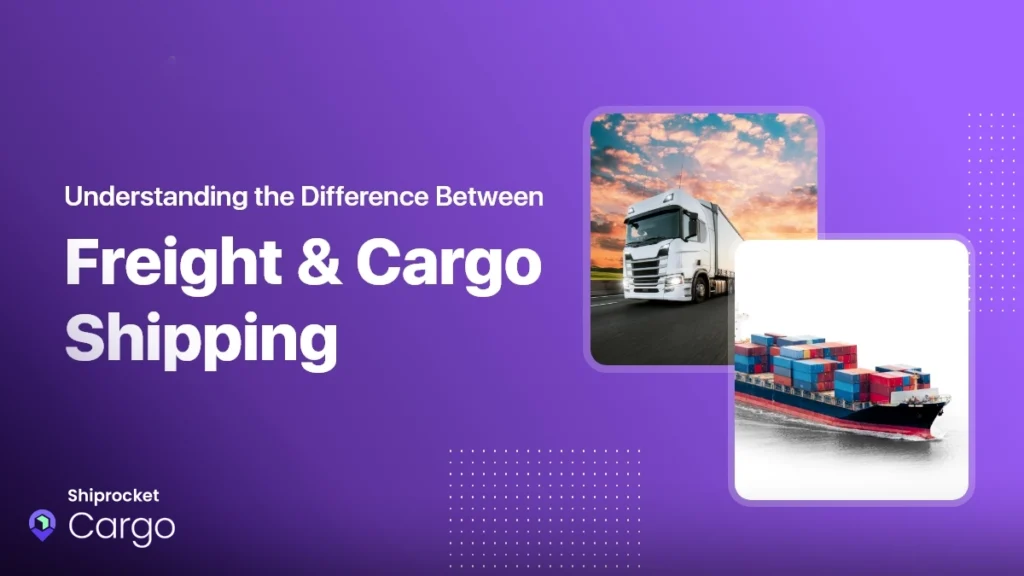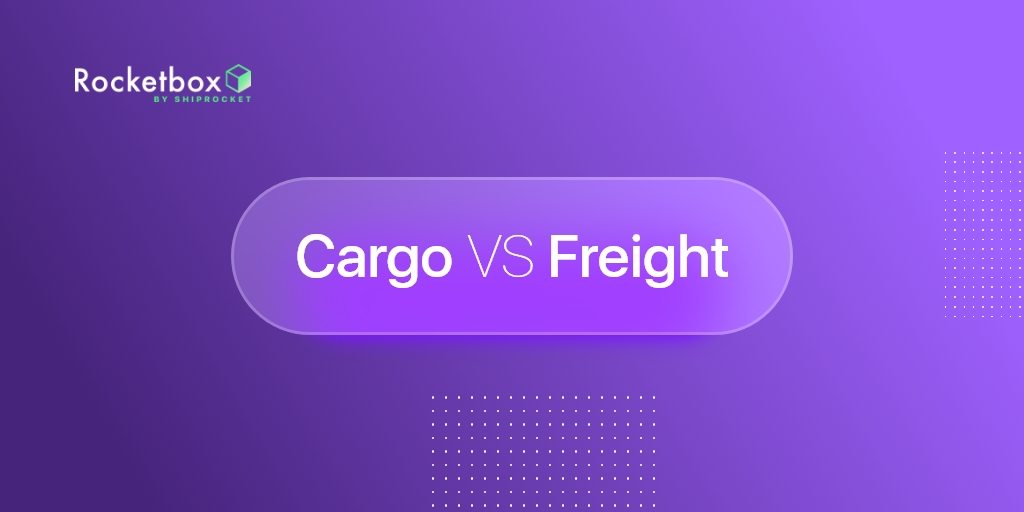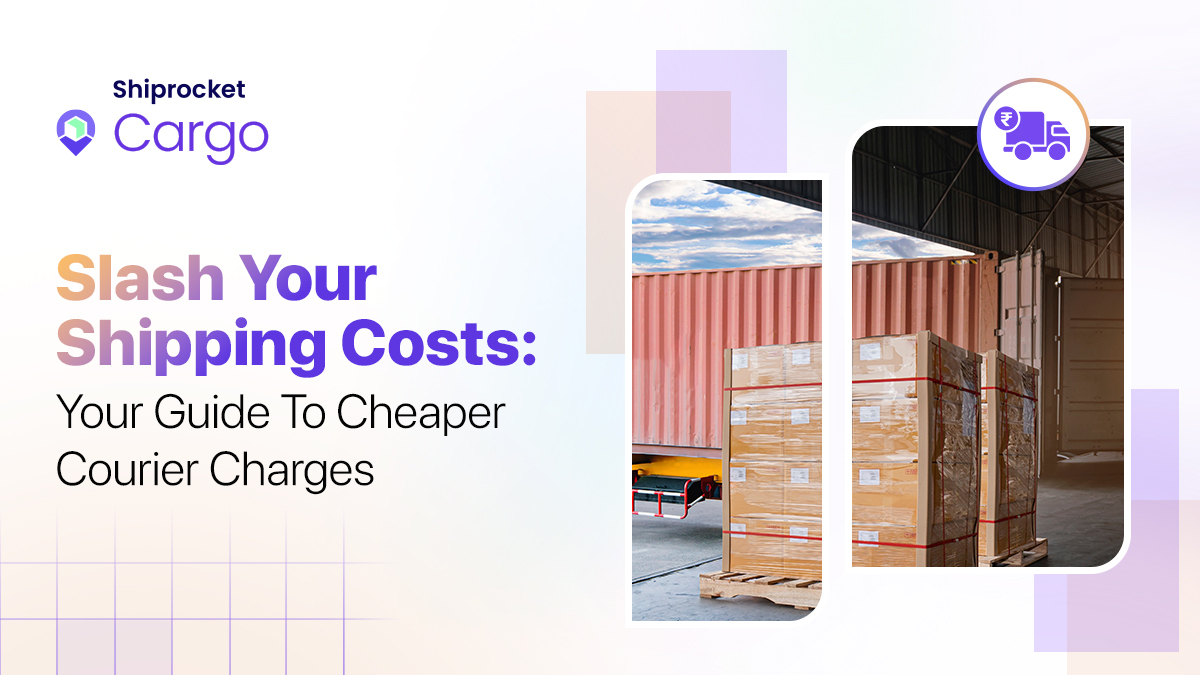Understanding the Difference Between Freight & Cargo Shipping
Freight and cargo shipping are an integral part of the supply chain and logistics. Both the terms are essentially related to transporting of goods. Therefore, many people use them interchangeably. Though their purpose is the same, the two terms are different in many aspects. Online sellers dealing in shipping and delivering products must know this difference to make an informed business choice.

This blog will explore the difference between cargo shipping and freight shipping. You can learn about the shipping methods to choose the best-suited one for as per business needs.
What is Cargo Shipping?

The term cargo is used for the goods transported via ship or plane. Mails can also be called cargo.
However, the word cargo is only related to the goods transported and does not include payment or money charged for transportation of goods. Essentially, the product that is being transported is called cargo. The large cargo containers (product containers) are used to carry products from one place to another. Or goods can also be transported on pallets, handling nets, or any other such means.

Similarly, the mailing services offered to transport parcels may also be called cargo.
Thus, cargo shipping refers to the transportation of goods via ships or planes.
What is Freight Shipping?

Typically, freight is used for goods transported by train or truck. Freight trucks or freight trains are used for such transportation. However, goods can also be transported via air, i.e., air freight. Additionally, freight can also mean a cargo (product) is being transported via truck, train, air, or ship. However, freight is only associated with commercial goods. Thus, mail can’t be called freight.
Freight can be considered many things – product, merchandise, or payment/money. Unlike cargo, the term freight is related to payment as well. Therefore, you can say freight charges – the charges for transporting a good.
Thus, freight shipping refers to cargo transported via train, truck, or air.
Cargo VS Freight

The main difference between cargo and freight is the fees associated with freight. Cargo is the goods carried by larger vehicles, like cargo ships and cargo planes. At the same time, the freight is the goods carried by trucks. Cargo does not refer to money charged for transportation. But it only means the product being transported from one place to another. On the other hand, freight also refers to the goods transported from one place to another. But it can also be called the process of transporting.
Earlier, both the terms can’t be used for importing and exporting goods since cargo is transported via ship or plane and freight exclusively via truck or train. Now, you can use both the terms for importing and exporting goods as the difference between the two terms is narrowing down in modern times.
Final Words
While cargo and freight have a lot in common, they do have minimal differences as well. Both terms refer to transporting goods, but freight also has financial connotations. Finally, cargo shipping or freight shipping depends on the mode you are using for shipping products. For example, you can ship heavy machinery material via ship cargo. Or you can deliver birthday or anniversary gifts via train or truck (freight service).



